 W
WHenri Frédéric Amiel was a Swiss moral philosopher, poet, and critic.
 W
WThéodore-Agrippa d'Aubigné was a French poet, soldier, propagandist and chronicler. His epic poem Les Tragiques (1616) is widely regarded as his masterpiece. In a book about his Catholic contemporary Jean de La Ceppède, English poet Keith Bosley has called d'Aubigné, "the epic poet of the Protestant cause," during the French Wars of Religion. Bosley added, however, that after d'Aubigné's death, he, "was forgotten until the Romantics rediscovered him."
 W
WNelly Anna "Nel" Benschop was a Dutch poet. She was a best selling poet in the Netherlands.
 W
WWilliam Blake was an English poet, painter, and printmaker. Largely unrecognised during his lifetime, Blake is now considered a seminal figure in the history of the poetry and visual arts of the Romantic Age. What he called his prophetic works were said by 20th-century critic Northrop Frye to form "what is in proportion to its merits the least read body of poetry in the English language". His visual artistry led 21st-century critic Jonathan Jones to proclaim him "far and away the greatest artist Britain has ever produced". In 2002, Blake was placed at number 38 in the BBC's poll of the 100 Greatest Britons. While he lived in London his entire life, except for three years spent in Felpham, he produced a diverse and symbolically rich œuvre, which embraced the imagination as "the body of God" or "human existence itself".
 W
WAnne Bradstreet was the most prominent of early English poets of North America and first writer in England's North American colonies to be published. She is the first Puritan figure in American Literature and notable for her large corpus of poetry, as well as personal writings published posthumously.
 W
WIon Alion Buzdugan was a Bessarabian-Romanian poet, folklorist, and politician. A young schoolteacher in the Russian Empire by 1908, he wrote poetry and collected folklore emphasizing Bessarabia's links with Romania, and associated with various founding figures of the Romanian nationalist movement, beginning with Ion Pelivan. Buzdugan was a far-left figure during the February Revolution, but eventually rallied with the National Moldavian Party in opposition to the socialists and the Bolsheviks. He vehemently supported the union of Bessarabia with Romania during the existence of an independent Moldavian Democratic Republic, and, as a member of its legislature, worked to bring it about. Threatened by the Bolsheviks, he fled to Romania and returned with an expeditionary corps headed by General Ernest Broșteanu, being one of the delegates who voted for the union, and one of dignitaries who signed its proclamation.
 W
WJean Maurice Eugène Clément Cocteau was a French poet, playwright, novelist, designer, filmmaker, visual artist and critic.
 W
WGuillaume de Salluste Du Bartas was a Gascon Huguenot courtier and poet. Trained as a doctor of law, he served in the court of Henri de Navarre for most of his career. Du Bartas was celebrated across sixteenth- and seventeenth-century Europe for his divine poetry, particularly L'Uranie (1574), Judit (1574), La Sepmaine; ou, Creation du monde (1578), and La Seconde Semaine (1584-1603).
 W
WEgypt Ali, from Cleveland, Ohio, who goes by the stage name Egypt Speaks, is an American musician, and Spoken Word artist.
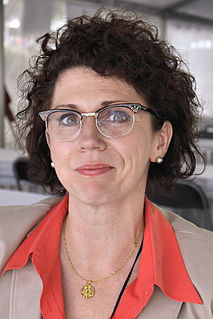 W
WJill Alexander Essbaum is an American poet, writer, and professor. Her most recent collections are the full-length manuscripts Harlot and Necropolis. Essbaum's poetry features puns, wordplay and dark humor, often mixed with religious and erotic imagery. She currently teaches at the University of California Riverside Palm Desert Graduate Center in the Masters of Creative Writing Graduate Program. Essbaum's debut novel, Hausfrau was published March 2015.
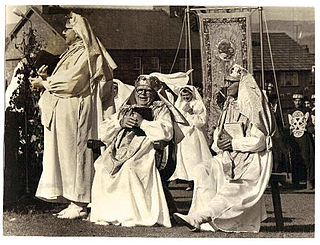 W
WSir (Albert) Cynan Evans-Jones CBE, more commonly known within Wales by his bardic name of Cynan, was a Welsh war poet and dramatist.
 W
WElena Borisovna Frolova is a Russian singer-songwriter, composer, and poet. She is author and performer of songs based on poems by many Russian poets of twentieth century, including Marina Tsvetaeva, Sophia Parnok, Joseph Brodsky, Anna Barkova, Andrei Belyi, Varlam Shalamov, Maria Petrovykh, Veniamin Blazhenny, Bulat Okudzhava, and many others, as well as her own poetry. Frolova is one of few performers who uses Russian folk instrument gusli and ancient harp, along with classical six-string guitar for the accompaniment. During 25 years of work she created more than 630 songs and published more than 40 music albums.
 W
WGrigor Narekatsi was an Armenian mystical and lyrical poet, monk, and theologian. He is a saint of the Armenian Apostolic Church and was declared a Doctor of the Church by Pope Francis in 2015.
 W
WLorenz Leopold Haschka was an Austrian poet and author of the words to Gott erhalte Franz den Kaiser, Austria's national anthem until 1918.
 W
WAnnie Sherwood Hawks was an American poet and gospel hymnist who wrote a number of hymns with her pastor, Robert Lowry. She contributed to several popular Sunday school hymnbooks, and wrote the lyrics to a number of well-known hymns including: "I Need Thee Every Hour"; "Thine, Most Gracious Lord"; "Why Weepest Thou? Who Seekest Thou?"; "Full and Free Salvation" and "My Soul Is Anchored".
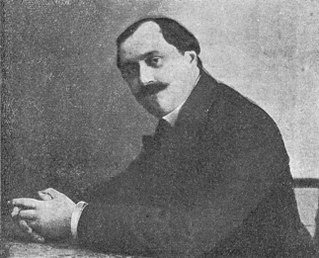 W
WDumitru or Dimitrie Karnabatt was a Romanian poet, art critic and political journalist, one of the minor representatives of Symbolism. He was a disciple of both Alexandru Macedonski and Ștefan Petică, representing the conservative and mystical school of Romanian Symbolism, and a regular contributor to the newspaper Seara. He is also remembered as the husband and, for a while, literary partner of novelist Lucrezzia Karnabatt.
 W
WSøren Aabye Kierkegaard was a Danish philosopher, theologian, poet, social critic, and religious author who is widely considered to be the first existentialist philosopher. He wrote critical texts on organized religion, Christendom, morality, ethics, psychology, and the philosophy of religion, displaying a fondness for metaphor, irony, and parables. Much of his philosophical work deals with the issues of how one lives as a "single individual", giving priority to concrete human reality over abstract thinking and highlighting the importance of personal choice and commitment. He was against literary critics who defined idealist intellectuals and philosophers of his time, and thought that Swedenborg, Hegel, Fichte, Schelling, Schlegel, and Hans Christian Andersen were all "understood" far too quickly by "scholars".
 W
WJohann Kaspar Lavater was a Swiss poet, writer, philosopher, physiognomist and theologian.
 W
WHaralamb George Lecca was a Romanian poet, playwright and translator, grandson of artist Constantin Lecca and brother of genealogist Octav-George Lecca, as well as nephew and rival of writer Ion Luca Caragiale. He had an unsettled youth, studying medicine and law for a while, and also reaching a Sub-Officer's rank in the terrestrial army. He debuted in literature under the guidance of Bogdan Petriceicu Hasdeu, who also employed Lecca's services as a medium. His early work was in poetry, often outstandingly macabre, evidencing his familiarity with 19th-century French literature and hinting at a vague affiliation with Symbolism. Briefly a collaborator of Junimea society, then of its dissident wings, Lecca never joined the fledgling Symbolist movement, and spent his later life in relative isolation from all literary circles.
 W
WGotthold Ephraim Lessing was a German writer, philosopher, dramatist, publicist and art critic, and an outstanding representative of the Enlightenment era. His plays and theoretical writings substantially influenced the development of German literature. He is widely considered by theatre historians to be the first dramaturg in his role at Abel Seyler's Hamburg National Theatre.
 W
WJorge Mateus de Lima was a Brazilian politician, physician, poet, novelist, biographer, essayist, translator and painter. His poetry was initially composed in Alexandrine form, but he later became a modernist.
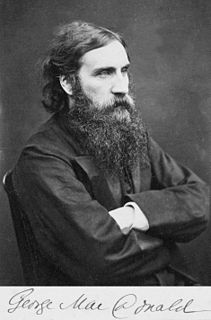 W
WGeorge MacDonald was a Scottish author, poet and Christian minister. He was a pioneering figure in the field of modern fantasy literature and the mentor of fellow writer Lewis Carroll. In addition to his fairy tales, MacDonald wrote several works of Christian theology, including several collections of sermons.
 W
WDonar Munteanu was a Romanian poet, representing the provincial wing of Romanian Symbolism, Convorbiri Critice circle and, later, the Gândirea literary movement. Generally considered a good, but not great, author, from his thirties and into old age he belonged to the devotional school of Orthodox Church writers, producing mostly sonnets. Professionally, he was active as a magistrate and prison inspector, a career which allowed him to visit the country and to participate in the literary life of Bessarabia. He withdrew from public life following the establishment of Romanian communist regime, and remained largely forgotten.
 W
WBoris Leonidovich Pasternak was a Russian poet, novelist, and literary translator. Composed in 1917, Pasternak's first book of poems, My Sister, Life, was published in Berlin in 1922 and soon became an important collection in the Russian language. Pasternak's translations of stage plays by Goethe, Schiller, Calderón de la Barca and Shakespeare remain very popular with Russian audiences.
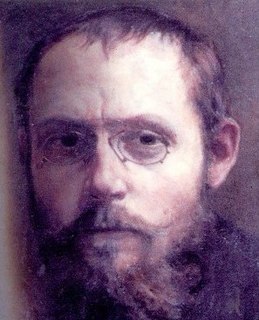 W
WCharles Pierre Péguy was a noted French poet, essayist, and editor. His two main philosophies were socialism and nationalism, but by 1908 at the latest, after years of uneasy agnosticism, he had become a believing but non-practicing Roman Catholic. From that time, Catholicism strongly influenced his works.
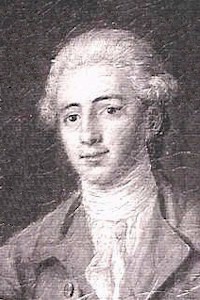 W
WEdward Perronet was the son of an Anglican priest, who worked closely with Anglican priest John Wesley and his brother Charles Wesley for many years in England's eighteenth century revival.
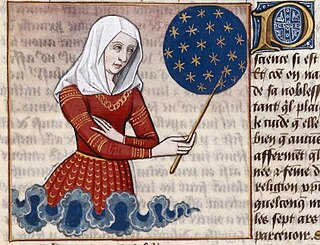 W
WFaltonia Betitia Proba was a Latin Roman Christian poet, perhaps the earliest female Christian poet whose work survives. A member of one of the most influential aristocratic families, she composed the Cento Vergilianus de laudibus Christi, a cento composed with verses by Virgil re-ordered to form an epic poem centred on the life of Jesus.
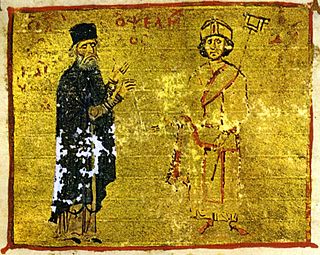 W
WMichael Psellos or Psellus was a Byzantine Greek monk, savant, writer, philosopher, politician and historian. He was born in 1017 or 1018, and is believed to have died in 1078, although it has also been maintained that he remained alive until 1096.
 W
WMiklós Radnóti was a Hungarian poet and teacher.
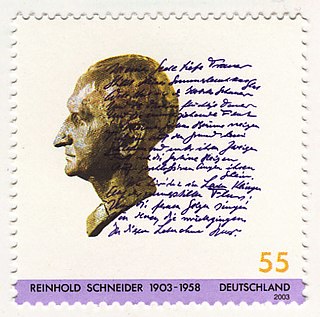 W
WReinhold Schneider was a German poet who also wrote novels. Initially his works were less religious, but later his poetry had a Christian and specifically Catholic influence. His first works included ones about Luís de Camões and Portugal.
 W
WSedulius was a Christian poet of the first half of the 5th century.
 W
WAngelus Silesius, born Johann Scheffler and also known as Johann Angelus Silesius, was a German Catholic priest and physician, known as a mystic and religious poet. Born and raised a Lutheran, he adopted the name Angelus and the epithet Silesius ("Silesian") on converting to Catholicism in 1653. While studying in the Netherlands, he began to read the works of medieval mystics and became acquainted with the works of the German mystic Jacob Böhme through Böhme's friend, Abraham von Franckenberg. Silesius's mystical beliefs caused tension between him and Lutheran authorities and led to his eventual conversion to Catholicism. He took holy orders under the Franciscans and was ordained a priest in 1661. Ten years later, in 1671, he retired to a Jesuit house where he remained for the rest of his life.
 W
WSophronius, called Sophronius the Sophist, was the Patriarch of Jerusalem from 634 until his death. He is venerated as a saint in the Eastern Orthodox and Catholic Churches. Before rising to the primacy of the see of Jerusalem, he was a monk and theologian who was the chief protagonist for orthodox teaching in the doctrinal controversy on the essential nature of Jesus and his volitional acts.
 W
WRobert Southey was an English poet of the Romantic school, and Poet Laureate from 1813 until his death. Like the other Lake Poets, William Wordsworth and Samuel Taylor Coleridge, Southey had begun as a radical, but became steadily more conservative, as he acquired respect for Britain and its institutions. Other romantics, notably Byron, accused him of siding with the establishment for money and status. He is principally remembered as author of the poem After Blenheim and the original version of Goldilocks and the Three Bears.
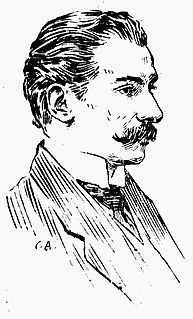 W
WAl. T. Stamatiad was a Romanian Symbolist poet, short story writer, and dramatist. A late arrival on the local Symbolist scene, he was primarily active as a literary promoter and, in 1918, editor of Literatorul review. Discovered and praised by Alexandru Macedonski and Ion Minulescu, he combined his presence in radical Symbolist circles with stints on more culturally conservative ones, crossing between the extremes of Romanian literature. By 1911, he had established himself in cultural and social circles as an exotic and vocal, sometimes violent, cultural debater.
 W
WJoseph Swain was a British Baptist minister, poet and hymnwriter. Born in Birmingham, and orphaned at an early age, he was apprenticed as an engraver in Birmingham and afterwards in London. He experienced a religious conversion in 1782, and was baptised by John Rippon in the Baptist meeting-house in Carter Lane, Tooley Street, Southwark, on 11 May 1783. He subsequently became a Baptist minister and pastor of East Street Baptist church in Walworth from 1792 until his death in 1796. He was a popular preacher, and during the period of his ministry it became necessary to extend the church building on three occasions.
 W
WTeresa of Ávila, born Teresa Sánchez de Cepeda y Ahumada, also called Saint Teresa of Jesus, was a Spanish noblewoman who felt called to convent life in the Catholic Church. A Carmelite nun, prominent Spanish mystic, religious reformer, author, theologian of the contemplative life and of mental prayer, she earned the rare distinction of being declared a Doctor of the Church, but not until over four centuries after her death. Active during the Catholic Reformation, she reformed the Carmelite Orders of both women and men. The movement she initiated was later joined by the younger Spanish Carmelite friar and mystic John of the Cross. It led eventually to the establishment of the Discalced Carmelites. A formal papal decree adopting the split from the old order was issued in 1580.
 W
WGerhard Tersteegen, was a German Reformed religious writer and hymnist.
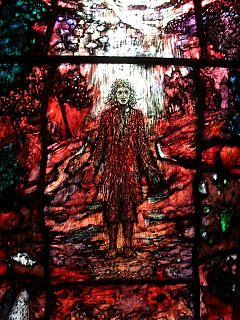 W
WThomas Traherne was an English poet, clergyman, theologian, and religious writer. The intense, scholarly spirituality in his writings has led to his being commemorated by some parts of the Anglican Communion on 10 October or on September 27.
 W
WSandu Tudor was a Romanian poet, journalist, theologian and Orthodox monk. Having had an adventurous youth, he first became known in the late 1920s, when he contributed to the modern Orthodox revival, rallying with the journal Gândirea. Although a traditionalist and a critic of materialism, he was closely associated with the modernist scene, and generally supported left-wing causes. Tudor was also a scandal-prone journalist and newspaper owner, who faced accusations of slander and was avoided by his peers.
 W
WVenantius Honorius Clementianus Fortunatus was a Latin poet and hymnographer in the Merovingian Court, and a Bishop of the Early Church. He has been venerated as Saint Venantius Fortunatus since the Middle Ages.
 W
WMarco Girolamo Vida or Marcus Hieronymus Vida was an Italian humanist, bishop and poet.
 W
WMischa Willett is an American poet and essayist best known for his work in the poetic elegy and for his academic championship of the Spasmodic poets.